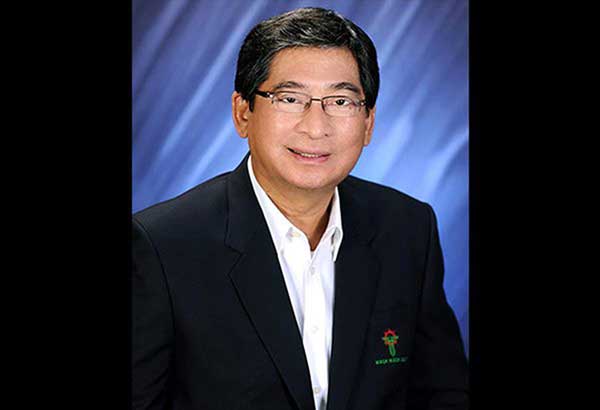Be a hero in delivery, not in promises


Dr. Philip Ella Juico, president of the Philippine Athletics Track and Field Association and dean of DLSU’s Graduate School of Business
The country’s recent SEA Games debacle once again illustrated a cardinal rule of effective business management: “Be a hero in delivery, not in promises.”
Or, said another way: “Deliver or over-deliver what you commit to; never, ever over-promise and under-deliver!”
I’ve seen it so many times in a row it is hard to keep track. But once again, many of the sports leaders in the country failed to learn this fundamental lesson of any well-run business. Good leaders call out reality. They know their business. They put real numbers on the table and then deliver them. They don’t brag and put out unachievable figures, celebrate the braggadocio and then look like fools when they miss by a mile.
Be a hero in delivery, not in promises.
At the recent SEA Games in Malaysia, the various NSAs, it seems, forwarded a predicted gold medal count of 63 to the PSC. The PSC then supposedly scaled back this figure to a rounded-off “50 gold medals.” The actual result?
The Philippines ended up in a dismal sixth place, with a mere 24 gold medals. The prediction, no matter how you look at it, was off by more than double!
Talk about being way off! Wow. I think any 12-year-old could have guessed closer than this.
This is how many times in a row? How many past SEA Games? Asian Games? It’s basically every time. We go out with bold promises, and come limping back home with a mere fraction of the promise.
It’s just like a salesperson who gives you bold predictions for the month’s sales, only to end the month missing big. This kind of over-promising and under-delivering destroys a company over time. Why?
It delays critical introspection on real issues. An artificially high target puts people at false ease. They think everything is “OK.” They wait to see how things “play out” rather than engaging to fix the real issues. It delays truth, and in business, time is money. These delays in confronting reality can lead a business to being chronically behind the competition and failing to address legitimate issues. It’s all a façade of false complacency. When a leader fails to call out reality, they are abdicating the role of leadership. They are simply “buying time” and putting off the bad news and digging a deeper hole for themselves and the business. Call out reality. If people don’t like the figure, well, at least they know reality and can start to address the problems. But misleading the audience behind inflated figures only delays the pain and puts the organization or business further behind.
It destroys the credibility of the leadership. Leaders must learn how to manage expectations. Let’s face a harsh truth: If someone promises 50 gold medals and the outcome is 24, how likely are you to believe this person next time? Probably not very likely. How long is Wall Street going to trust a CEO who promises a profit target and misses by 50 percent? They would be fired by the next quarter! Credibility is everything. Trust is everything in an organization. The conclusion to any leader being this far off? They clearly don’t know what they are talking about. They are out of touch with reality.
It’s interesting that one of the few NSAs to be considered a star in the recent SEA Games is PATAFA, or Philippine Athletics Track and Field Association. This is an NSA that publicly committed three gold medals at a congressional hearing in April, and ended up over-delivering at five golds by the close of the SEA Games. PATAFA is led by Dr. Philip Ella Juico, an astute businessman and dean of the Graduate School of Business at DLSU. Clearly a man who knows the rules of business, and as such, he runs PATAFA like a professional business. He was a hero in delivery, not foolishly in promises.
We need more sports leaders to mimic the business approach of Dr. Juico and PATAFA. We have real issues in our sports programs that need to be urgently addressed, not endlessly put off by excuses and overpromises. Having been involved with several elite athletes for several years now, I can say our problem is not our athletes or their dedication. We have tremendous talent and dedication to excellence. A strong will to sacrifice and win. That’s not our issue.
Our issue is we are being left behind. Many, if not most nations, view sports as a vehicle to build national pride and identity. They invest in the best coaches. They invest in the science that sport is now becoming to provide that one, two, or three-percent edge that can make all the difference between a gold medal and fifth place. Strength training. Diet. Sports psychology. The list goes on and on. We are light years behind and this is the issue. Watch how our athletes’ strength-train, go see the weightlifting facilities at Philippines Sports Complex, watch how they eat. We are mired in the 1970s, at best. We are behind and our athletes are trying their best with the limited options at their disposal.
I went to two separate SEA Games sendoffs and celebrations for SEA Games athletes. Both were catered with pizza, rice, hoagies, French fries and ice cream. Sounds good! But is this the meal you feed world-class athletes competing against the very best? Hell, no! It’s what you feed a college dorm party, not a room full of elite athletes. Some leading physiologists attribute up to 30 percent of performance — depending on the sport — to diet. We feed our athletes cheap junk food. Now compare this to Vietnam or Malaysia, who are investing big in athletics. What do you think their athletes are eating right now? I guarantee it isn’t huge portions of rice, ice cream, hoagies or French fries! We must organize ourselves around the science of sport. Put people who know what they are doing in key roles. Enforce the rules. Being a professional athlete in today’s world is a 24/7 commitment, not a mere two hours per day on the track. It starts with what one eats for breakfast in the morning and ends with a proper night’s sleep. And includes every hour in between.
We need more Juicos in our sports world. We need more of a business approach. And we need to start with one of the simplest of business principles: Be a hero in delivery, not in promises.
We do this, and the Philippines will have a modern-day “gold rush.”
* * *
Questions and comments may be directed to Facebook, James Michael Lafferty.



















